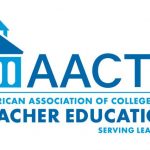As a teenager in her hometown of Paraty, Brazil, Pauline Batista ’16 MA was enrolled in a rigorous five-year teacher- training high school and held multiple paid internships. “It was very hectic because I would leave my house at 7 in the morning and come back at 10 at night,” Batista says. “Your average 15-year-old is not dealing with all that. But for me, that was normal.”
Congratulations to our Neag School alumni, faculty, staff, and students on their continued accomplishments inside and outside the classroom.
Luis Ferreira will begin his Ph.D. studies in educational psychology this spring after facing unforeseen obstacles in obtaining a visa to study in the United States. Accepted to UConn’s Neag School of Education in February 2020, he has made tremendous sacrifices to pursue his doctorate, including moving away from his wife and family in Brazil.
Lauren Dougher ’19 MA, a doctoral student in cognition, instruction, and learning technology; Jordane Virgo ’19 (CANHR), a master’s student in school counseling; and Elizabeth Canavan, a master’s student in the Integrated Bachelor’s/Master’s Program, have been named the recipients of the Neag School of Education Alumni Board Scholarship for 2021.
No state school finance system remains adequate in perpetuity without checks and balances. Goals change as do other demands on local public schools. State school finance systems require constant evaluation and recalibration. Connecticut schoolchildren have waited far too long, especially those in the state’s low income black and Latinx communities.
The COVID pandemic has laid bare the extent of inequalities across Connecticut’s cities, towns, and school districts and the children and families they serve. Connecticut has long been one of our nation’s most racially and economically segregated states, while also one of the wealthiest. In the past decade those inequities have worsened along both economic and racial lines. In 2021, Connecticut continues to face the interrelated challenges of segregation and school funding equity and adequacy. Connecticut must do better.
Preschool can help ensure that children reach their fullest potential. Research suggests that preschool has a strong, positive impact on children’s brain development, relationships, and knowledge acquisition, as well as a broader return on investment for society. This brief summarizes this research and investigates preschool access in Connecticut.
Friendships are powerful and positive – especially friendships between members of historically marginalized groups like women, people of color, and LGBTQ individuals. In a paper recently published by the journal Human Resource Development Review, lead author Kristi Kaeppel ’20 Ph.D., a graduate assistant with the Center for Excellence in Teaching and Learning; adjunct professor of philosophy at UConn Stamford and School of Business academic advisor Emma Björngard-Basayne ’15 MA, ’18 Ph.D.; and Grenier argue that workplaces that value and promote friendships can enhance the well-being of their workforce – to the benefits of both the individuals and the institutions.
“On the anniversary of Juneteenth, hundreds of mostly young, Black protesters went directly to the Hartford mayor’s brownstone house in downtown with a simple demand: abolish police,” co-writes Robert Cotto, a Neag School doctoral student. “Despite their demand, the mayor’s response was a mismatch. Instead of defunding, abolishing, or even tangibly reducing the size of the police, the mayor recommended building more affordable housing in the suburbs. Rather than racial and economic justice for the Black and Puerto Rican people in Hartford now, the response was clear: I will not help you change policies, but I will help you leave.”
This fall, the American Association of Colleges for Teacher Education (AACTE) selected UConn’s Neag School of Education to join its Holmes Scholars Program, a nationwide network of higher education institutions seeking to support students from historically underrepresented communities enrolled in graduate programs across the field of education.






